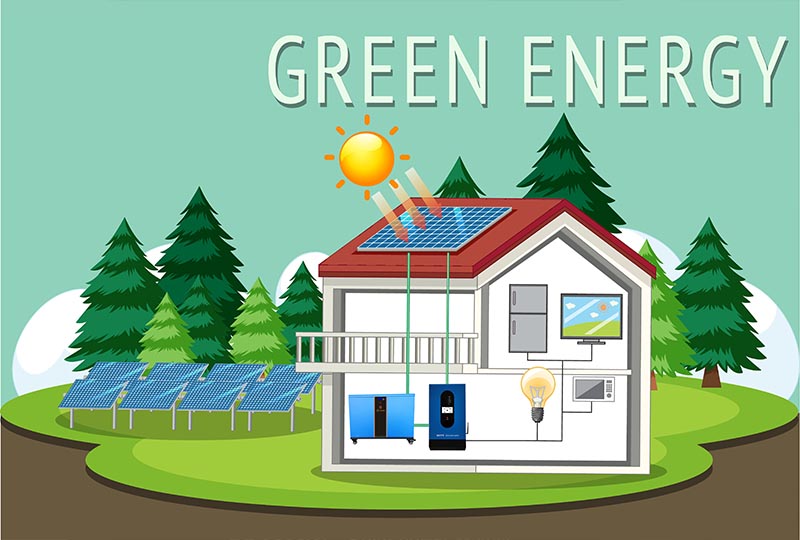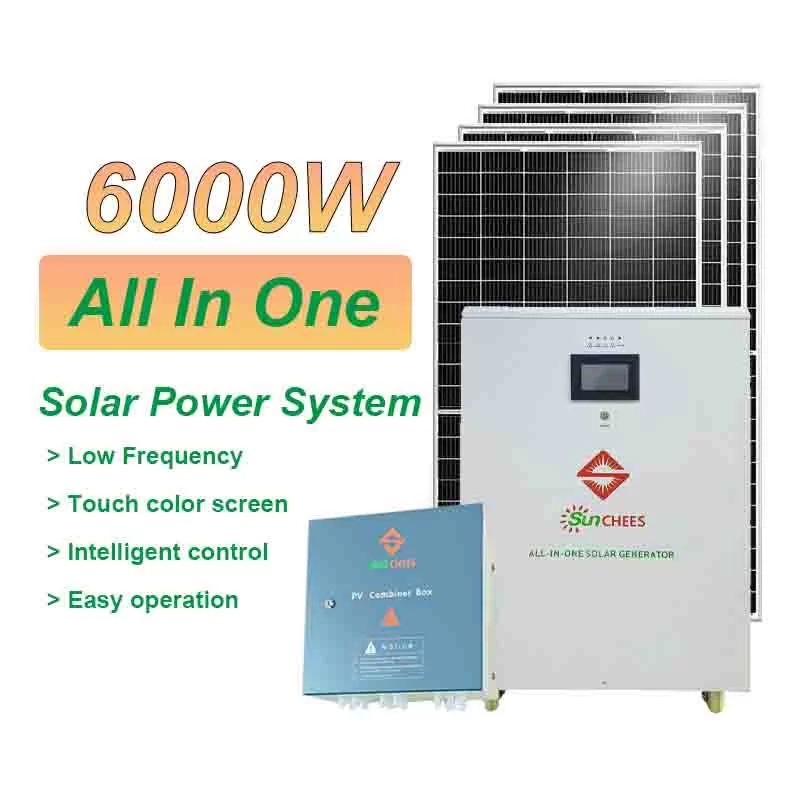Explore The Infinite Possibilities Of Solar Energy Systems
 Jul 23,2024
Jul 23,2024

 sunchees solar system
sunchees solar system
In today's era of pursuing sustainable development and clean energy, solar energy systems are changing our energy landscape with their unique charm and huge potential. As an inexhaustible green energy, solar energy has brought many conveniences and opportunities to our lives.
1. Working principle of solar energy system
2. Types of solar energy systems
3. Advantages of solar energy system
4. Application fields of solar energy systems
5. Future Outlook of Solar Energy Systems
1. Working principle of solar energy system
Solar energy system mainly converts sunlight into electrical energy through the photovoltaic effect. Photovoltaic panels are composed of multiple solar cells. When sunlight shines on the battery, the energy of photons stimulates the movement of electrons, thereby generating electric current. This process is simple and efficient, does not require any moving parts, is almost silent and pollution-free.
For example, common household solar energy systems are usually installed on the roof. When the sun is sufficient, the electricity generated by photovoltaic panels can be directly used by the family, and the excess electricity can be stored in batteries or sold back to the grid.

2. Types of solar energy systems
Independent solar energy system
This system is not connected to the grid and relies entirely on solar power generation and stored electricity to meet energy needs. It is usually used in remote areas or places where there is no access to the grid, such as communication base stations in mountainous areas, lighthouses at sea, etc.
Grid-connected solar energy system
Connected to the power grid, when solar power generation is insufficient, it can obtain electricity from the grid; when solar power generation is excessive, it can feed back excess electricity to the grid. This not only improves the efficiency of energy utilization, but also brings certain economic benefits to users.
Hybrid solar energy system
Combines solar energy with other energy forms, such as wind power, hydropower or diesel generators, to ensure stable power supply under various weather conditions.
3. Advantages of solar energy system
Environmental protection and energy saving
Solar energy is a clean energy that does not produce greenhouse gas emissions, which helps to reduce pollution to the environment and mitigate the impact of climate change.
Cost-effectiveness
With the advancement of technology and the expansion of scale, the installation and operation costs of solar energy systems are gradually reduced. In the long run, solar power generation can save users a lot of electricity bills.
Independence and reliability
In some cases, such as when natural disasters cause power grid failures, having an independent solar energy system can ensure basic energy supply and improve the reliability of life.
4. Application fields of solar energy systems
- Household area
Power supply
Meet the daily lighting and electrical appliances of the family, such as TV, refrigerator, washing machine, etc., and reduce the cost of household electricity.
For example, many families install solar panels on the roof, and the electricity generated is enough to meet most of the electricity demand during the day.
Hot water supply
Provide hot water for the family through solar water heaters, reducing the dependence on traditional energy water heaters.
- Commercial and industrial areas
Factory production
Provide electricity for the factory's machinery, equipment, production lines, etc., reduce production costs, and improve the competitiveness of enterprises.
For example, some large manufacturing plants use solar energy systems to meet part of the production electricity, reducing the consumption of city electricity.
Office buildings
Meet the electricity needs of office buildings such as lighting, air conditioning, and elevators, and create a green office environment.
Commercial centers
Shopping malls, supermarkets and other commercial places are powered by solar energy systems to achieve energy conservation and emission reduction.
- Agricultural field
Irrigation system
Use solar energy to drive water pumps for farmland irrigation to ensure the growth of crops.
In some arid areas, solar irrigation systems play an important role.
Greenhouses
Provide the energy required for lighting and temperature regulation for greenhouses to promote the growth of crops.
Agricultural product processing
Solar energy is used in the processing of agricultural products, such as drying and refrigeration.
IV. Transportation
Solar street lights
The street lights on both sides of the road are powered by solar energy, saving energy and reducing maintenance costs.
Electric vehicle charging
Build solar charging stations to provide charging services for electric vehicles.
V. Communications
Communication base stations
Communication base stations in remote areas rely on solar energy systems to ensure smooth communications.
Satellite communications
Some equipment on satellites uses solar energy as a source of energy.
VI. Public facilities
Traffic lights
Traffic lights in cities are powered by solar energy to improve operational reliability.
Outdoor billboards
Solar energy provides lighting for outdoor billboards, reducing the trouble of accessing the mains.
Public toilets
Meet the energy needs of public toilets such as lighting and ventilation.
The application of solar energy systems in various fields continues to expand and deepen, providing strong support for achieving sustainable development goals, responding to energy crises and environmental protection challenges.
5. Future Outlook of Solar Energy Systems
With the continuous innovation and breakthrough of technology, the efficiency of solar energy systems will be further improved and the cost will continue to decrease. The development of new materials and manufacturing processes will make solar cells more efficient, lightweight and durable. At the same time, the combination of solar energy with energy storage technology and smart grid will be closer, providing strong support for global energy transformation.
In short, as a sustainable energy solution, solar energy systems are leading us to a cleaner, greener and better future. Let us actively embrace solar energy and contribute to the sustainable development of the earth.




 Home
Home Home Solar System Installation Steps
Home Solar System Installation Steps  You May Also Like
You May Also Like






 Tel
Tel
 Email
Email
 Address
Address















